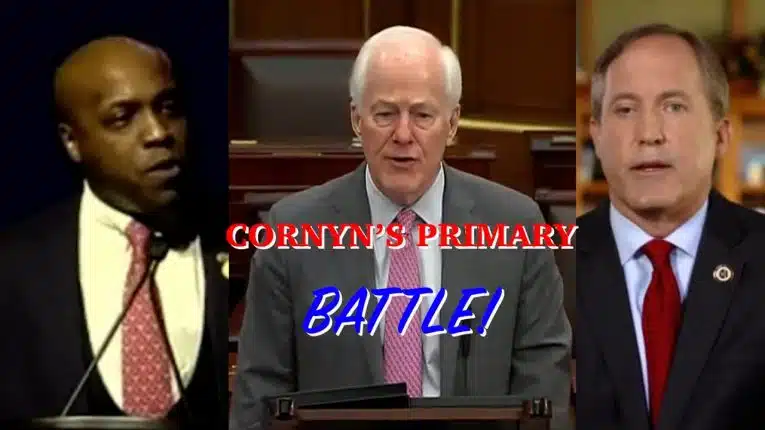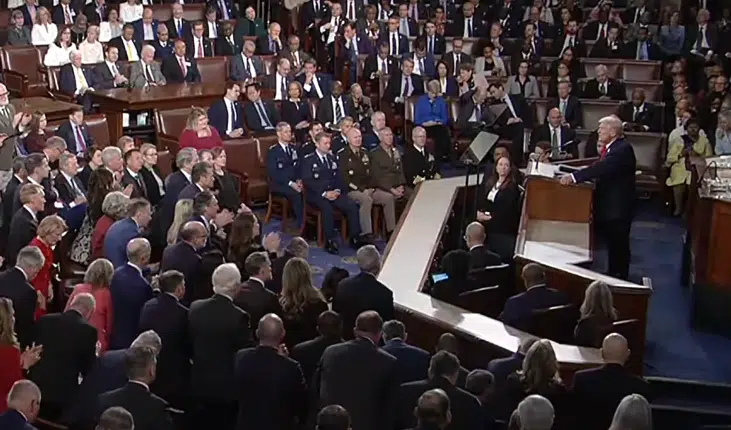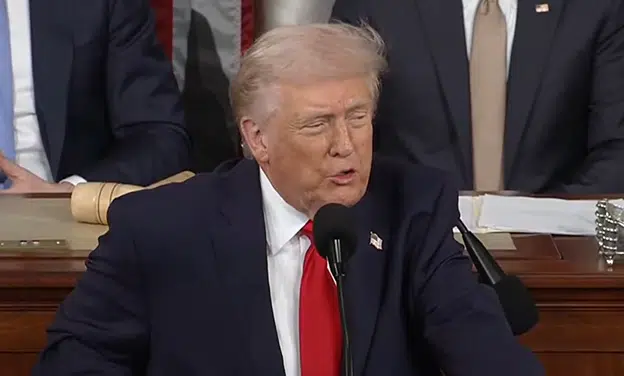 By Robert Romano – “The only way Republicans’ leverage on the debt ceiling will work is if they’re willing to not increase the debt ceiling,” Americans for Limited Government (ALG) President Bill Wilson declared in a recent plea for congressional Republicans.
By Robert Romano – “The only way Republicans’ leverage on the debt ceiling will work is if they’re willing to not increase the debt ceiling,” Americans for Limited Government (ALG) President Bill Wilson declared in a recent plea for congressional Republicans.
He wants them to hold firm on their commitment to attach significant spending cuts to any increase in the nation’s borrowing limit.
Today, Wilson is joining congressional conservatives and other free market and limited government leaders today in a press conference in support of the “Cut, Cap, and Balance” pledge.
ALG and others are concerned that without firm conditions, the current fight over increasing the $14.294 trillion national debt ceiling will only yield token cuts that will fail to rein in Washington, D.C.’s out-of-control spending. The pledge is targeted to all federal elected officials as well as candidates for federal office including the presidency.
“House Republicans gambled big time on the continuing resolution earlier this year, when they had the threat of a government shutdown to use. But that only yielded $352 million in actual spending reductions for this fiscal year,” Wilson noted, warning, “After promising the American people something big on the debt ceiling, they cannot politically afford to fall short like they did in April.”
Wilson believes the debt ceiling is an opportunity for members to redeem themselves in the eyes of the American people. “It’s never too late to do the right thing,” he said.
By signing the pledge, members of Congress are agreeing not to under any circumstances increase the $14.294 trillion debt ceiling — unless the deficit is reduced by hundreds of billions of dollars immediately, spending is statutorily capped to no more than 18 percent of the Gross Domestic Product, and a Balanced Budget Amendment is passed in both houses of Congress and sent to the several states for adoption.
If the White House and Senate Majority Leader Harry Reid refuse to deal, under the “Cut, Cap, and Balance” pledge, the debt ceiling would not be raised.
“Now it is time for Republican leaders in Congress to draw a line in the sand and take the pledge,” Wilson said, adding, “There should be no vote to further increase the debt ceiling unless the American people have the assurance that it will not need to be increased again, and again, and again.”
Americans really do need that assurance. The current system of government never contemplates repayment. It should.
By 2021, the debt will have spiraled to over $26 trillion. To put that in perspective, if the U.S. were put onto a 30-year repayment plan tomorrow like a mortgage, annual principal payments would average about $477 billion — and that’s to say nothing of the annual gross interest payments, which already are over $434 billion.
That means we would need $900 billion set aside each year out of revenue just to pay down the debt incrementally.
If the same plan were to start in 2021, annual principal owed would rise to $867 billion. Assuming interest on treasuries rises to their historical average of 5 percent, by then, annual interest payments would be over $1 trillion. Then, we’d need a surplus of about $2 trillion to begin paying down the debt.
If we were to wait until the debt totals $50 trillion to begin repayment on a 30-year plan, the annual principal payments would jump to $1.67 trillion a year, and interest payments more than $2.5 trillion. Then, we’d need more than $4 trillion of a surplus to actually honor our obligations through repayment.
But we’ll never get that far. Already, the debt has become so large that it cannot be refinanced without simply printing more money. In 2009, the Federal Reserve printing press bought 80 percent of U.S. treasuries, according to Pimco. In 2010, it was 70 percent.
Treasury Secretary Timothy Geithner has threatened that the nation would default if the debt ceiling is not raised by August 2. But what does he think will happen if the debt is allowed to continue to grow uncontrolled?
As an aside, whether a default even happens without a debt ceiling increase would really depends on what Geithner wants to do. Either, he would continue to refinance the existing $14.3 trillion national debt, and make interest payments out of revenue, or he would not. If creditors are paid or not, the decision would solely rest with him.
In any event, it must be said that we’d be better off defaulting than being chained to a debt that cannot possibly be repaid.
Republicans should call the Obama Administration’s bluff. But they have to be willing to go all the way past August 2. Because if they are not, the alternative Congress faces is to cede the only leverage it has, and simply follow the Obama Administration’s wishes, increasing the debt ceiling without any strings attached. Essentially doing nothing.
“Cut, Cap, and Balance” is the only way to salvation. If members are to be truly honest with themselves and their constituents, doing nothing and just letting the debt grow perpetually is what is truly unthinkable.
Robert Romano is the Senior Editor of Americans for Limited Government.






